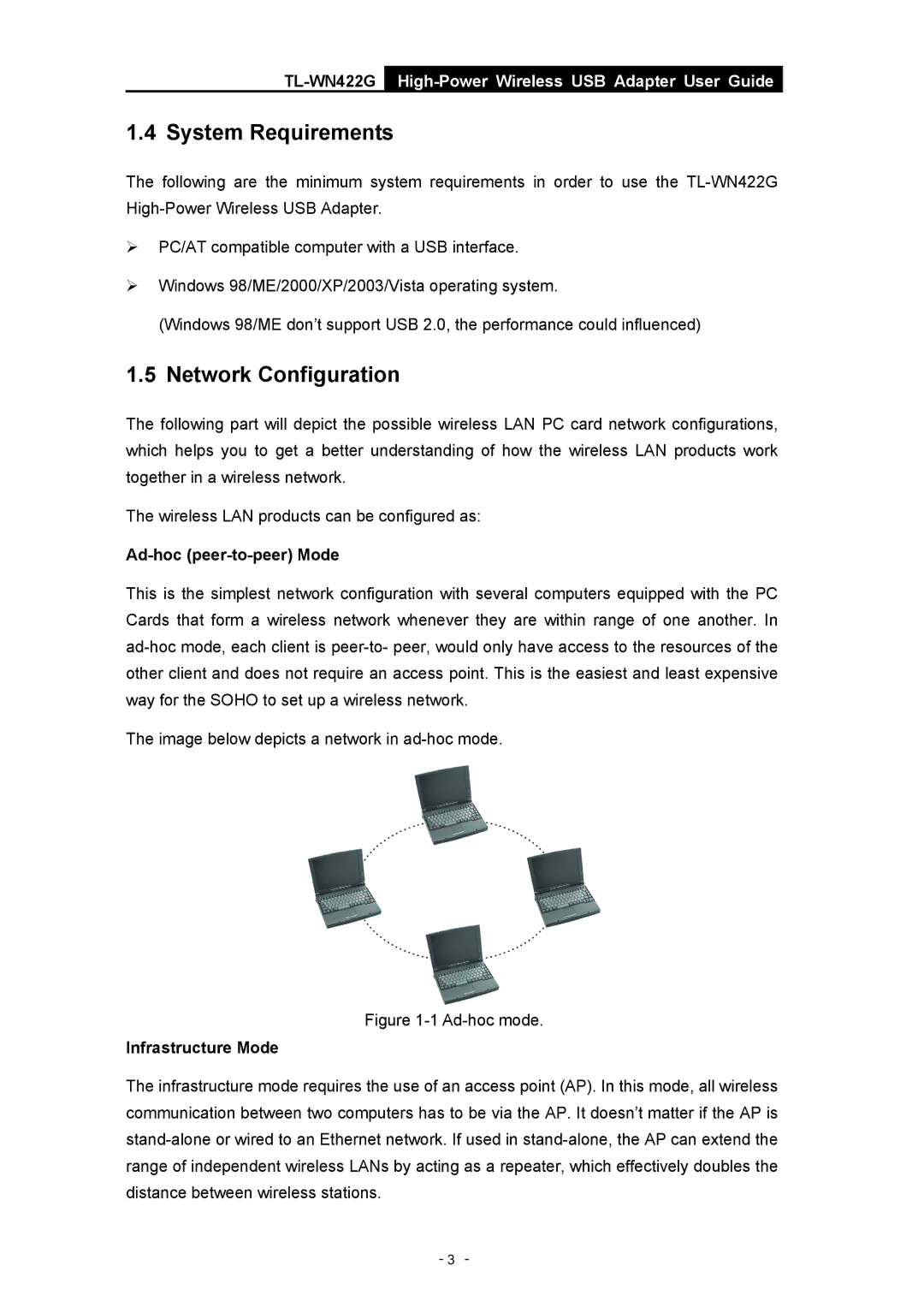
1.4 System Requirements
The following are the minimum system requirements in order to use the
¾PC/AT compatible computer with a USB interface.
¾Windows 98/ME/2000/XP/2003/Vista operating system.
(Windows 98/ME don’t support USB 2.0, the performance could influenced)
1.5 Network Configuration
The following part will depict the possible wireless LAN PC card network configurations, which helps you to get a better understanding of how the wireless LAN products work together in a wireless network.
The wireless LAN products can be configured as:
Ad-hoc (peer-to-peer) Mode
This is the simplest network configuration with several computers equipped with the PC Cards that form a wireless network whenever they are within range of one another. In
The image below depicts a network in
Figure 1-1 Ad-hoc mode.
Infrastructure Mode
The infrastructure mode requires the use of an access point (AP). In this mode, all wireless communication between two computers has to be via the AP. It doesn’t matter if the AP is
- 3 -
